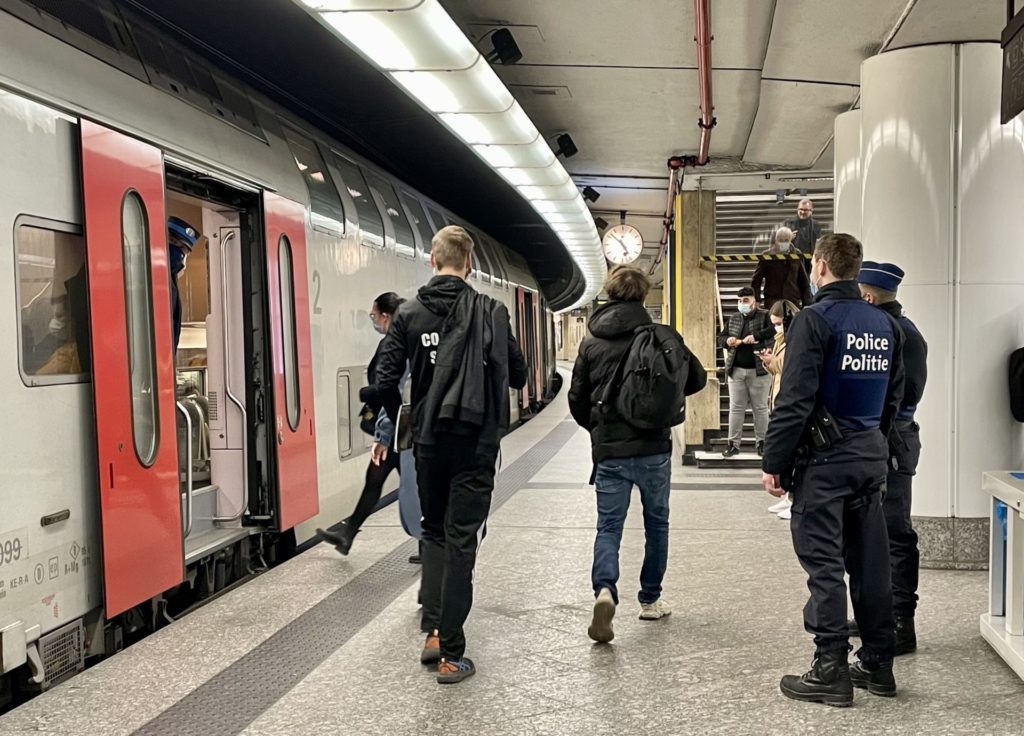Belgium's green parties have proposed an action plan against sexual harassment on public transport after a survey showed women are avoiding mass transit out of fear of being sexually harassed.
One in three women avoids public transport for fear of being a victim of inappropriate behaviour by other passengers, while in 2019, more than 400 complaints about sexual violence in public transport were recorded, according to data from FPS Mobility. This figure is expected to be higher, as very few such incidents are reported to the police.
"Public transport must be a place where you can feel at ease. Where you can dream without worry, work a little longer, read a book or a newspaper. No one should feel unsafe, neither the passengers nor the staff," Nicolas Parent (from the French-speaking Ecolo party) and Kim Buyst (Groen party), stated.
"It is therefore essential that the various governments and transport companies work together towards a common vision and exchange best practices on the subject, particularly on the basis of the impetus given by the interministerial conference on women's rights."
Both parties have together proposed the implementation of an action plan against sexual harassment and aggression on railways, which is expected to apply to all public transport. "This plan aims to make the railways safer for staff and passengers," Parent said.
Related News
- Why sexual harassment is still rife in Brussels
- Brussels allocates €610,000 to combat nightlife sexual violence
Alongside a general awareness-raising campaign, they also urged for an analysis to be carried out of dangerous or risky places in stations and on trains to find a structural solution for the issue.
Discreet alert system
If an incident does occur, both passengers and staff working for SNCB (the Belgian railway company) lack the means to report an incident, which is why the green parties are also calling for a more discreet system to report a problematic situation.
"It is difficult to call Securail (railway security company) if the perpetrator of the violence is standing right next to you. It is, therefore, necessary to be able to discreetly send an alert message via the SNCB application or a chat, which puts you directly in contact with the security services and the train attendants."
"This would mean Securail can intervene quickly to catch the perpetrator and the train attendant can help to take care of the victim," Parent explained.
Lastly, the parties are also calling for special attention to be paid to the staff, and want to include a module on sexual harassment and assault in the training of SNCB staff, as well as increase the presence of staff on lines where complaints are numerous.
"Train attendants and station staff are the first points of contact for passengers. Their role is crucial in dealing with victims of sexual harassment or assault and in handling complaints. The visible presence of staff also reduces the number of incidents."
"But they are also on the front line and therefore often the victims of bullying and assault. This has to stop," the MPs stressed, referring to the increasing number of reports of aggression against employees in 2021.

